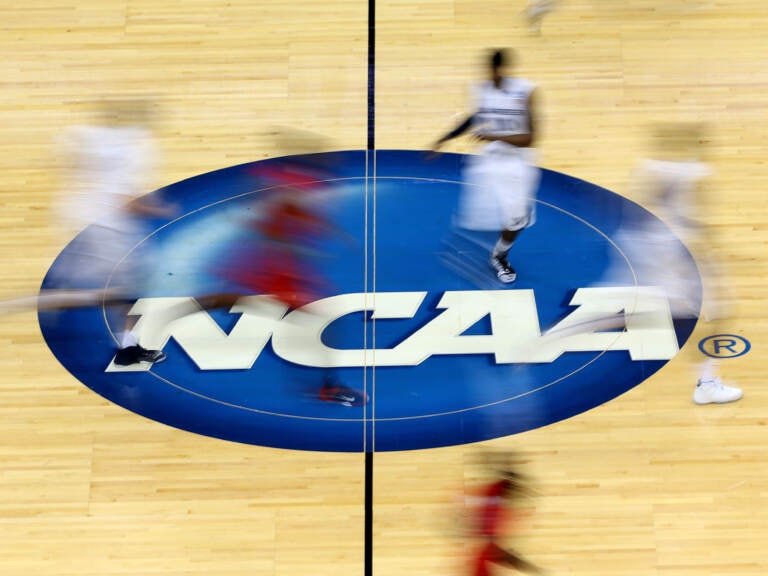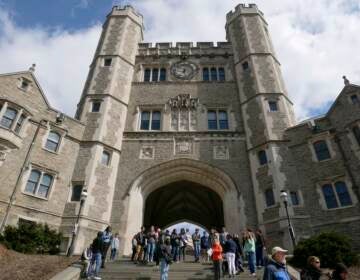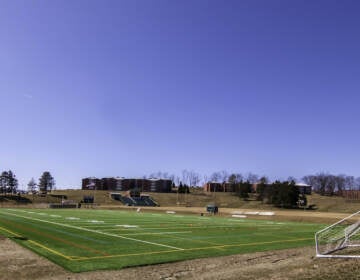The NCAA looks to weed out marijuana from its banned drug list

NCAA started its drug testing program in 1986. (Mike Ehrmann/Getty Images)
Over the past decade, medical and recreational marijuana has become more widely accepted, both culturally and legally. But in sports, pot can still get a bad rap.
Recreational weed has been the source of disappointment and disqualifications for athletes — like Sha’Carri Richardson, a U.S. sprinter poised who became ineligible to compete in the Tokyo Olympics after testing positive for marijuana.
But that may soon change for college athletes.
An NCAA panel is calling for the association to remove cannabis from its banned drug list and testing protocols. The group, the NCAA Committee on Competitive Safeguards and Medical Aspects of Sports, said that testing should be limited to performance-enhancing drugs and found that cannabis does not enhance performance.
Each of the three NCAA divisional governance bodies would still have to introduce and adopt the rule change for cannabis to be removed from the association’s banned drug list, the NCAA said in a statement released on Friday. The committee asked the NCAA to halt testing for cannabis at championship events while changes are considered.
The NCAA is expected to make a final decision on the matter in the fall.
The panel argued that the association should approach cannabis similarly to alcohol, to shift away from punitive measures and focus on educating student-athletes about the health risks of marijuana use.
The NCAA has been slowly reconsidering its approach to cannabis testing. Last year, the association raised the threshold of THC, the intoxicant substance in cannabis, needed to trigger a positive drug test.
It’s not just the NCAA that has been changing its stance on marijuana. The MLB announced it was dropping marijuana from its list of “drugs of abuse” back in 2019. Meanwhile, in 2021, the NFL halted THC testing for players during the off season.
The NCAA oversees college sports in about 1,100 schools in the U.S. and Canada. More than 500,000 student athletes compete in the NCAA’s three divisions. The association began its drug-testing program in 1986 to ensure competitions are fair and equitable.
9(MDAzMzI1ODY3MDEyMzkzOTE3NjIxNDg3MQ001))




